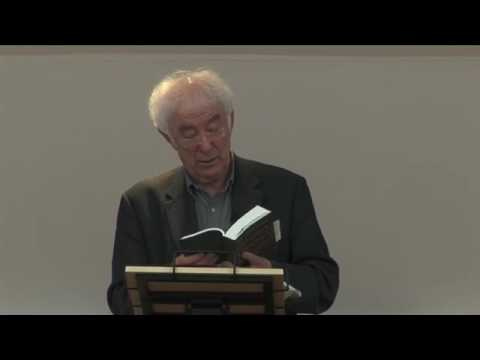Silence and The Blackbird
Yesterday I finished chapter 3 of Esther De Waal’s lovely little book, Lost in Wonder. In it she explores silence and how it is only through silence that we can hear the still, small voice of the Lord, as Elijah did.
“And after the earthquake a fire; but the Lord was not in the fire: and after the fire a still small voice. And it was so, when Elijah heard it, that he wrapped his face in his mantle, and went cut, and stood in the entering in of the cave. And, behold, there came a voice unto him, and said, What doest thou here, Elijah?”— 1 Kings xix. 12, 13
Of course, finding silence in our daily lives is nearly impossible. It takes discipline and willpower to turn off the phone, the radio, the TV, the podcast. And maybe even that isn’t enough considering the dopamine hits used by Silicon Valley to get us hooked on social media.
Just wanting to spend time in silence isn’t enough. Our attention has been auctioned off. Matthew Crawford has written a whole book about this. There are few, very few, places left that are free from noise. Aside from forests and beaches, churches and libraries might be the only two left in the public square. Gas stations now have those screens over the pump where commercials and “programs” loop over and over. Airports, supermarkets, shops, restaurants, they’re all filled with noise from televisions and pumped in music.
And then, of course, we pay to have noise and distractions in our pockets with our smartphones, on our wrists with the Apple watch. Maybe soon it really will be the chip in our heads. Even out in nature, say on a hike or a day at the beach, we take our phones out. When I go for a walk in the neighborhood I often see people who are staring down at or talking on their phones. Pedestrian accidents due to cell phone use are on the rise. People are walking into trees because they aren’t paying attention to the world around them. Over 6,000 pedestrians have been hit by cars as a result of distracted walking.
Our phones are probably the greatest intrusion upon silence since we most of us carry them with us all the time - because we need them. When really, we don’t Rome ruled the world without cell phones. Michelangelo painted the Sistene Chapel without one. Shakespeare and Dante wrote their poems without an internet connection. The ping of a text or email, the call of FB or Instagram or Twitter, is always there to lead us away from any quiet moments we might stumble upon or seek out.
I don’t start work until 10am and my goal every morning is to spend time in silence, prayer and writing. Certainly, I get some silence, but my phone is a major distraction. Th only way that I can not look at the text messages that arrive is to put the phone in another room, well away from me. It’s just too tempting, just a quick look, maybe it’s important, and 20 minutes later I’m wondering where the morning’s gone. Very rarely is any of what I’ve spent my time on imperative. It all could have waited. And even though I know from experience that those moments spent in silence are rewarding, far more rewarding than the moments spent flitting around on social media, I find myself reaching for my phone even when I intend not to. Silence has not learned to seduce us like our phones have. I mentioned his book before, but Matthew Crawford is well worth reading on this subject.
De Waal mentions finding a comfortable position in which to sit perfectly still, for silence is easier if you are comfortable. Sit perfectly still, she quotes, “as if we do not wish to disturb a bird that has flown down and is resting on our head.” Sitting perfectly still with a bird perched on my head sounds incredibly uncomfortable, to be honest. But it does remind me of this poem by Seamus Heaney:
Here's an amazing and very moving reading and discussion of St Kevin and the Blackbird by construction workers.
Here is a nice version with the text of the poem. And say what you will be about Ireland, but here is Heaney reading the poem on The Late Late Show.


